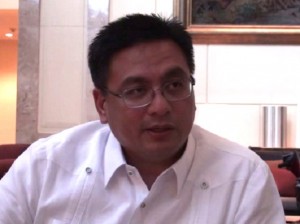MANILA, Philippines—Citing the Malacañang-ordered intensified antismuggling campaign, Customs Commissioner Ruffy Biazon has warned of “more apprehensions of illegally imported goods to come.”
In a statement, Biazon over the weekend said, “If we need to do apprehensions every day, then we will do it.”
“Let me make this clear to all importers and traders—there has never been a letup in the bureau’s antismuggling program,” he said.
Biazon noted that bureau agents “have been apprehending illegally imported goods since I assumed my post (in September 2011) and we pursued smugglers no matter who were protecting them.”
He also stressed the need to “have more convictions of smugglers in light of President Aquino’s order to curb smuggling and reform the agency.”
“And in compliance with the President’s directive, we will see to it that no stone is left unturned in our legal pursuit of those involved in smuggling, no matter who the powerful and influential people behind them may be,” he said.
Biazon has instructed Deputy Commissioner Peter Manzano, head of both the Revenue Collection and Monitoring Group and the Run after the Smugglers (RATS) program, to “focus on all the cases filed against smugglers in the Department of Justice and get favorable resolutions for the government at the soonest possible time.”
Of the more than 140 smuggling cases the Bureau of Customs has filed in the past three years, however, only three have resulted in convictions.
Biazon said RATS had been consistently filing smuggling cases every other week but a “big number of them remain pending in the judicial system, which affects the credibility of the program and its success rate.”
The bureau, he said, plans to enhance its coordination with the judiciary to secure convictions and put smugglers behind bars.
Interior Secretary Mar Roxas, meanwhile, told the Inquirer that the “biggest part of the reform” at the BOC would be the replacement of key officials and employees.
“I think the biggest part of reform is changing the people,” he told Inquirer editors and reporters at a dinner on Thursday.
Roxas said no amount of computerization of customs processes would bring about sweeping changes in the graft-ridden agency in the remainder of Aquino’s term.
He hinted that Biazon’s move asking for the courtesy resignations of port collectors, including the so-called “three kings”—Carlos So, Rogel Gatchalian and Ricardo Belmonte—was part of the plan.
“I think they could be placed on floating status,” said Roxas, but he quickly clarified that he was not privy to the reorganization of the BOC.
Roxas said the BOC—stripped down to its barest essentials—was nothing more than an agency that collected tariffs and duties from importers.
“What is customs except a toll booth? It’s the person (who should be reformed),” he said.
He said smuggling and corruption would not go away “whatever electronic (process) you will institute, if the collector will not collect the money or place it in the cash register, but put it in his pocket.”
He said the person manning the toll booth was the problem, and thus a “modern, air-conditioned, computerized” toll booth would not do the trick.
Roxas said the President had been incensed a long time by the inefficiencies and irregularities at the bureau.
“He has been wanting change in the Bureau of Customs. Part of his plans for changing the bureau was (retaining) Commissioner Biazon, that much I know,” he said.
RELATED STORIES
Court halts BOC computerization
Roxas: Top-to-bottom revamp at BOC soon
